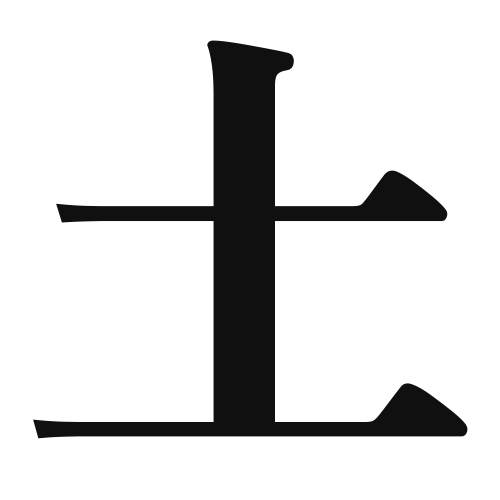1. Overview of Meaning
The kanji “土” (pronounced “tsuchi” in Japanese) means “earth” or “soil.” It represents the ground or land and is often associated with nature and agriculture.
2. Formation and Radical
Formation of the Kanji: The kanji “土” is a pictogram that visually represents the ground or earth. It is one of the simplest forms of kanji, depicting a flat surface.
Radical: The radical for “土” is also “土,” which is used in various other kanji related to earth, soil, and land.
3. Examples of Usage
Common Words and Phrases: Some frequently used words that include “土” are:
- 土曜日 (doyōbi) – Saturday
- 土地 (tochi) – land, property
- 土壌 (dojō) – soil
Example Sentences in Daily Conversation:
- この土地は農業に適しています。 (Kono tochi wa nōgyō ni tekishiteimasu.) – This land is suitable for agriculture.
- 土曜日に友達と会います。 (Doyōbi ni tomodachi to aimasu.) – I will meet my friends on Saturday.
4. Synonyms and Antonyms
Similar Kanji: A similar kanji is “地” (chi), which also means “earth” or “ground,” but it often refers to a more abstract concept of land or territory.
Opposite Kanji: An antonym is “空” (sora), which means “sky” or “air,” representing the opposite of the earth or ground.
5. Cultural and Historical Background
Relation to Japanese Culture: In Japanese culture, “土” is significant in agriculture, which has been a vital part of life for centuries. It symbolizes fertility and growth.
Proverbs and Idioms: One common saying is “土台を固める” (dodai o katameru), which means “to solidify the foundation,” emphasizing the importance of a strong base in any endeavor.
